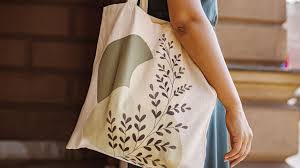Table of Contents
- Introduction to Sustainable Fashion
- The Role of Custom Bags
- Benefits of Custom Bags
- Environmental Impact
- Design Trends in Custom Bags
- How to Choose the Right Custom Bag
- Real-World Examples of Successful Custom Bag Campaigns
Introduction to Sustainable Fashion
In recent years, sustainable fashion has transcended its status as a mere trend; it’s blossomed into a vital movement within the consumer culture. With climate change topping global agendas, consumers are increasingly aware of their environmental impact. This awareness is driving them toward eco-friendly choices in clothing and accessories. These bags allow people to express their distinct personalities and ethical stances simultaneously.
Sustainable fashion underscores reducing waste, embracing eco-friendly materials, and adopting manufacturing processes that do not harm the planet. The rise in demand for products like custom bags highlights an implicit consumer endorsement of these values. Traditionally, the fashion industry has been notorious for its high levels of resource consumption. However, the surfacing of custom bags marks a significant shift, reflecting a burgeoning commitment to sustainability and responsible consumerism.
The Role of Custom Bags
Custom bags occupy a crucial sphere within sustainable fashion by proffering a viable alternative to mass-produced fashion accessories. Among these choices, custom bags are functional items and personalized avenues for expressing sustainable values. Their allure continues beyond aesthetics or exclusivity. They serve as a canvas for personal expression while intentionally supporting environmentally and ethically sound production techniques. By employing sustainable materials and bespoke designs, custom bags meet modern trends while maintaining a level of responsibility towards environmental wellbeing.
This intersection of individuality and responsibility marks a new era in which consumers demand transparency about the origins and impacts of their fashion items. Thus, custom bags exemplify how sustainability in fashion can evolve beyond rhetoric into actionable choices that align with conscientious lifestyle changes.
Benefits of Custom Bags
The advantages of owning custom bags are numerous and multifaceted. Besides offering a unique stylistic expression, custom bags frequently exhibit superior material quality and expert craftsmanship. These qualities culminate in durable products that adeptly merge utility with fashion. Thus, they provide an enriching experience for the environmentally conscious yet style-savvy consumer. Custom bags often benefit from potentially reducing individual contributions to environmental pollution.
Moreover, custom bags typically enable consumers to become more mindful of their consumption patterns by encouraging thoughtful, personalized purchases. This aligns with the growing trend of ‘slow fashion,’ which promotes investment in quality over quantity and favors ethical sourcing. By opting for a custom bag, you are not only choosing a resilient product but also one that contributes to a broader movement toward decreased consumer waste.
Environmental Impact
Custom bags signify positive environmental gains. Compared to mass-produced variants, they are often crafted from sustainable materials, thus reducing the carbon footprints associated with their production. Their on-demand manufacturing model redefines supply chain dynamics, efficiently aligning production volumes with actual demand and lowering the risk of surplus and waste.
The research underscores that while fast fashion heavily burdens landfills and natural resources, alternatives like custom bags have a modest environmental impact.
Design Trends in Custom Bags
The design landscape of custom bags is a dynamic and evolving arena. Trendy yet responsibly crafted designs employ materials ranging from recycled fabrics to innovative plant-based leathers. As sustainability integrates into mainstream fashion, today’s consumers yearn to merge environmental responsibility with chic aesthetics.
Emerging trends include multifunctionality, which allows for practical daily use in various contexts, and minimalist aesthetics, which highlight simplicity and sophistication. As custom demands climb, so does the emphasis on maintaining fashionable appeal while ensuring resource efficiency and conscientious production. More brands are incorporating personalization aspects that give customers a say in the final design, from color combinations to style variants, which adds a personal touch to the sustainability label.
How to Choose the Right Custom Bag
Choosing a custom bag can be straightforward if approached methodically. Commence by scrutinizing the materials—opt for those that resonate with sustainable practices, like recycled cotton or natural fibers. Next, investigate the production practices of potential suppliers to guarantee ethical manufacturing.
Furthermore, reflect on the primary use of the bag. Is it meant for professional, casual, or travel purposes? Each scenario might dictate different requirements concerning size, compartments, and durability. A considered selection ensures your custom bag will serve desired functions and align with an ethos of sustainability. Additionally, consider the lifecycle of the bag, from design to disposal, to ensure it aligns with personal and environmental values. This holistic approach ensures you’re investing in style and a sustainable future.
Real-World Examples of Successful Custom Bag Campaigns
Numerous brands have effectively modeled sustainability in fashion via successful custom bag campaigns. Highlighted through their innovative design and responsible practices, these campaigns have captured consumer admiration. By offering customization services directly to the consumer, companies enhance product appeal and forge a stronger connection with their audience.
These campaigns often succeed by marrying aesthetic innovation with transparent communication about materials and ethical practices, resulting in heightened consumer engagement and brand loyalty. They reflect how businesses can meld creativity with responsibility, prompting broader awareness and adoption of sustainable fashion. By integrating locally sourced materials and spotlighting artisans in promotional efforts, such campaigns create a narrative that resonates with values-driven consumers and bolsters a community-centric approach to sustainability.
Conclusion
Custom bags transcend their role as mere fashion accessories; they embody a commitment to sustainability, offering a harmonious blend of utility, design, and environmental care. As consumers shift towards making eco-friendly choices, custom bags emerge as essential players in sustainable fashion. They encourage choices reflecting personal style and a predisposition towards safeguarding our planet’s future. By understanding and embracing this shift, consumers can make impactful decisions that support both individual expression and ecological balance, thus actively shaping a sustainable future.
Stay in touch to get more news & updates on Vents Breaking!

